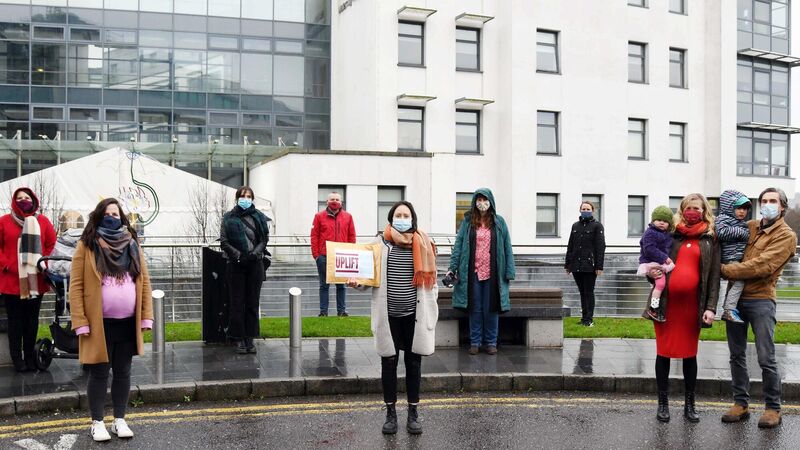Joyce Fegan: When will we see the emergency legislation for pregnant women?

Siobhán O'Donoghue, Linda Kelly, Holly de Burgh, Julie Coakley and councillor John Maher with members of Uplift delivering a petition signed by 52,250 people to CUMH last December calling for partners to be allowed attend scans, labour, and postnatal visits. See link to 'protest' story below. Picture Denis Minihane
Where there’s a will there’s a way. Indoor dining? No problem, let’s draft emergency legislation and have it before both the Dáil and the Seanad next week.
All-party agreement? You got it. Fancy a pint under the roof of your favourite pub? Say no more, we’ll get vaccine passes for that.












